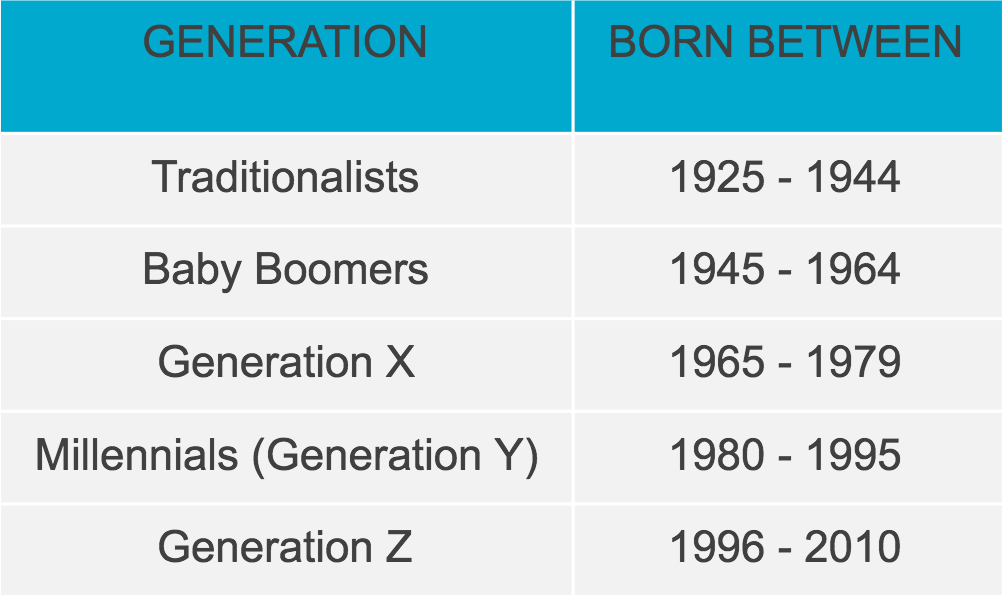Separating Fact from Fiction about Millennials at Work

Commuters walk in Grand Central Station in New York City. New data suggests that common hypotheses about millennial behavior at work are incorrect.
Photo: Timothy A. Clary/AFP/Getty Images
Stereotypes about millennials abound. Read the popular press or reports of employee surveys and you will come away with the view that millennials differ substantially from their older counterparts—and even previous generations of younger workers—in what they value and expect from work.
The stereotypes suggest millennials care most about the pursuit of mission, varied experience, continuous learning, entrepreneurial opportunity and work relationships and that they are less concerned about the traditional extrinsic rewards of pay and hierarchical position.
But are these perceptions accurate?
Specifically, do they reflect the actual behaviors of millennials at work? It’s an important question, as many organizations are responding to the received wisdom by trying to tailor their employee value propositions (EVPs) to the supposed unique needs and values of this generation.
Voting with Their Feet
Every day, employees effectively “vote with their feet,” deciding whether to stay with or leave their employer. Statistically identifying what most predicts the actual stay or go decision helps identify the elements of the EVP that are, in fact, highly valued by employees.
To test millennial values and the proposition that they differ from older workers, we constructed and estimated a multivariate, logistic regression model that controls for individual characteristics (e.g., generation, age, tenure with the company, performance, pay and job histories), organization and job characteristics (e.g., supervisor status and relationships, supervisor spans of control, job type and function, team characteristics), and external market characteristics (e.g., work location, industry, local unemployment rates).
Rich Millennial Data Set
This model was applied to a data set of over two million records of employees in multiple companies from different industries, covering multiple years. The richness of the data set allowed us to capture not only the effects of individual characteristics and outcomes but those reflective of an employee’s work environment and working conditions as well.
We statistically estimated the model to determine relative turnover probabilities, identify significant drivers of turnover probability and measure their relative impact. We also ran separate models by generation to statistically estimate and measure the factors that drive the stay/quit decision for millennials as compared to Generation X, baby boomers, and traditionalists, defined in the following table:
This modeling allowed us to understand, for example, how much more or less likely an individual is to stay the year following a work-related event such as a promotion, lateral move, performance assessment or pay change, depending on if they are a millennial versus another generation or versus all older generations together.
It also permitted us to examine if and to what extent millennials respond differently to situational factors, such as the characteristics of their supervisor or team. So, for example, we could test whether having a millennial manager or being on a team with proportionally more of their own generation made a millennial more or less likely to turn over as compared to their older colleagues.
Key Findings
Many of the common hypotheses around millennials are not supported by the results of our modeling.
While overall turnover probability was indeed found to be significantly higher for millennials than it was for their older colleagues—roughly 20 percent higher than comparable GenXs, all else being equal—the pattern and relative strength of drivers of millennial turnover are quite different from expectations. Our key findings include:
Base Pay Matters
Contrary to conventional wisdom, millennials are more base-pay oriented than their older counterparts. Their turnover probability is responsive to pay levels and growth as well as receipt of a bonus, but less so compared to older employees. However, the higher that base pay is as a percentage of total compensation, the stronger the retention effect on millennials. This is an outcome not consistently found with older employees. It suggests an aversion to having more pay at risk, a finding at odds with the idea that millennials are intrinsically more entrepreneurial or mission-driven.
Up and Out
It turns out that hierarchical advancement does matter to millennials. Certain model specifications show that, all else being equal, recently promoted millennials are substantially more likely to leave their employer, suggesting they may leverage promotions to secure other opportunities. A similar pattern is seen with respect to lateral moves. These results suggest that millennials may value mobility and learning across employers, rather than within their current organization.
Ambivalence toward Performance Ratings
Contrary to expectation, ratings—both performance and potential—don’t seem to hold any special currency for millennials. If anything, they are less sensitive to ratings than older peers. Under some model specifications, high ratings are actually associated with higher turnover probability for millennials, again suggesting a propensity to leverage positive internal signals of value to secure new opportunities in the labor market.
The Relative Importance of Flexibility Is Unclear
Dimensions of flexible employment or alternative work arrangements do not appear to be more valued by millennials than others. For example, while all employees are more likely to leave if they are on a part-time basis, the turnover differential for part-time millennials is about twice as high as it is for non-millennials. This suggests that offering flexible employment, such as part-time status does less to retain millennials than older workers.
Supervisor Characteristics Do Matter
There are more consistent and stronger effects of supervisor characteristics and relationships on millennial turnover than other generations. For example, all else being equal, millennials are far less likely to turn over when they report to highly rated supervisors or to female supervisors. And they are substantially more likely to quit if their supervisor quits. None of these relationships are detected among other generations.
Implications for Employers
Our research carries a number of hiring and workforce implications:
- What people say they value may not actually motivate their behavior, so relying only on surveys can be misleading.
- The idea that high turnover is simply a fact of life when employing millennials is unfounded. The employment value proposition the employer offers matters a lot and can strongly influence the choices millennials make at work.
- The basic economics of the deal—especially base pay—are actually more important for millennials than their older counterparts.
- The idea that, for millennials, opportunities for internal mobility and more varied experience can substitute for conventional extrinsic rewards is not borne out by the facts. In fact, older workers seem to value mobility more and may be prime candidates for the internally mobile workforce.
- If millennials’ behavior is affected by their supervisors, the assignment of supervisors should be done strategically.
In the age of analytics and big data, organizations have the opportunity to understand their employees as well as their customers. Given the sheer size of investments in people made by employers, the payoff from modeling actual behavior can be huge.
With so many millennials burdened with large student loans and facing high costs of living where they reside, the fact that millennials are motivated by traditional extrinsic motivators such as base pay should not be a surprise.
But stereotypes can cloud even basic economics and mislead decision-makers. Hard dollars, predictable (over variable) pay, and effective supervisors may be what it takes to secure and motivate the millennial workforce.






